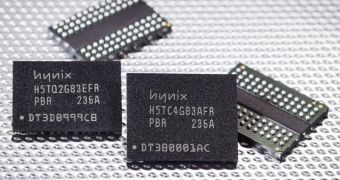The semiconductor market continues to do worse than everyone involved in it would like, and there isn't any guarantee that things will pick up that much even in the fourth quarter.
Certainly, sales of PCs and tablets should go up quite a bit after Microsoft releases its Windows 8 operating system, but even that may not make much of a difference.
The only ray of sunshine is that notebook shipments from manufacturers to vendors increased by 70% in September, but the rest of the semiconductor industry (DRAM, NAND) will probably offset that rebound. And we'll not even get into the ultrabook shipment forecast drop from 22 million to 10.3 million.
"Global semiconductor sales have held steady in recent months despite strong macroeconomic headwinds, but these challenges have hampered growth," said Brian Toohey, president and CEO for SIA.
"With Election Day fast approaching, candidates should have a vigorous discussion about enacting government policies to reduce business uncertainty, accelerate the economic recovery and keep America at the forefront of innovation."
Politics aside, August 2012 was a period during which worldwide semiconductor sales reached $24.30 billion, or 18.7 billion Euro.
That's 0.1% better than in July, but 3% less than in August 2011. And since 2011 had no new major OS to buoy demand, the decline is more serious than it seems.
Japan and Asia Pacific exhibited the mildest decreases in sales, while Europe and the Americas saw the worst of them.
All in all, the semiconductor industry is diametrically opposed to that of hard disk drives, financially. Even though the widely discussed crisis, caused by the 2011 Thai floods, should have caused a sharp plunge in HDD sales, the market ended up experiencing a record level of shipments. That's no mean feat in a time when the PC market as a whole is doing poorly.

 14 DAY TRIAL //
14 DAY TRIAL //